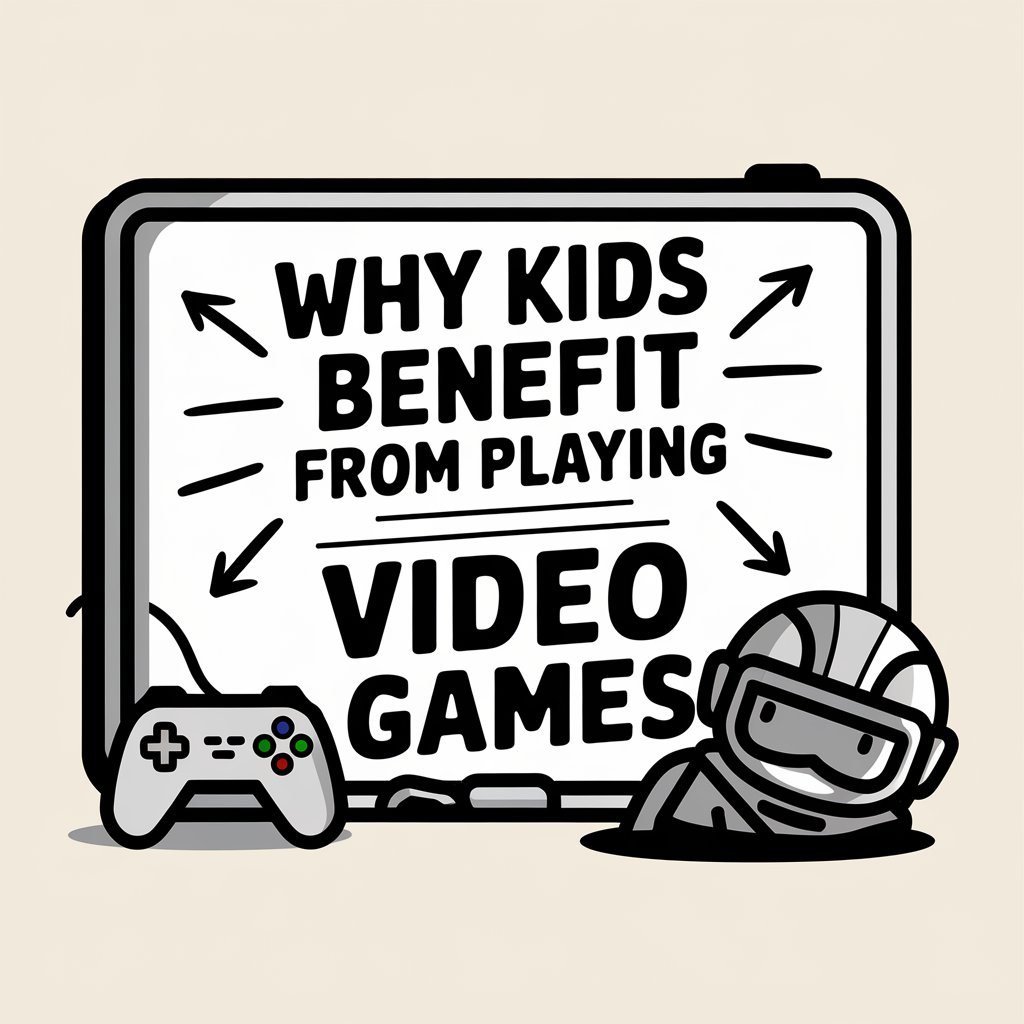How Children Benefit From Playing Video Games
For years, many people have seen video games as a waste of time that will rot kids’ brains. Concerned parents and educators often worry that too much screen time means less learning, poor focus, and an increase in behavioral issues.
However, new research is showing that video games have big benefits, especially for children. For example, video games can help kids learn problem-solving skills, inspire creativity, and support academic learning.
Here’s a closer look at the positive aspect of letting your kids play video games.
1. Video games improve cognitive function
There is mounting evidence that people who play video games improve their cognitive function significantly compared to those who never play. For example, research from 2014 showed lasting positive effects on perception, attention, memory, and decision-making. Games that require players to move quickly, track multiple items, hold information in their minds, and make fast decisions had the biggest impact.
Other studies have found that playing video games improves visual contrast sensitivity, can improve a lazy eye, bring vision up to 20/20 or better, and can restore normal depth perception.
Additional studies have found that video games can improve spatial attention and the ability to track moving objects in a field of identical distractions. Study participants who played video games showed less impulsivity, and many even overcame dyslexia.
When testing for executive functioning, playing video games once again showed improvement. For example, just 50 hours of playing an action video game was shown to significantly improve performance on the Multi-Attribute Task Battery, which is a test that mimics skills required to pilot an aircraft. Many researchers have also reported that action video game play improves a person’s ability to switch quickly between tasks that have conflicting demands, which is extremely difficult for people who struggle with executive functioning.
2. Video games can be played anywhere
One of the biggest benefits is the fact that video games can be played anywhere, and some handheld consoles don’t require an internet connection. Instead of letting your child roam free on the internet while you wait for a doctor’s appointment or drive to grandma’s house, give them a handheld console with an educational game.
For instance, a Nintendo Switch can keep a child entertained for hours while they learn from the games they play. If they’ve been bugging you about the new Switch 2, it’s worth considering since it’s backward compatible. All you’ll need is a durable Nintendo Switch 2 case to protect it from shocks and drops and your child can continue to enjoy all their favorite games.
3. Improved mind-body connection
Video games are known for requiring precise hand-eye coordination, and some games are extremely difficult. However, over time, players develop more precision and faster reflexes. For example, research from Western University demonstrated that video game players can process visual information and respond faster to situations compared to non-players. That’s a huge win for sports, driving, and any other skill that requires making split-second decisions.
4. Video games encourage creativity
When kids immerse themselves in fantasy worlds where they need to create characters, shape their worlds, and experiment with storytelling, it boosts their creativity. Games like Roblox, The Sims, and Legend of Zelda are all perfect examples of games that help children develop the capacity to create narratives – a skill that can be applied in the real world.
5. Video games build teamwork skills
When kids play on a team, whether in person or online, they need to learn communication and cooperation skills to win. Through these multiplayer games, kids learn clear communication, conflict resolution, and teamwork. These skills directly translate into valuable skills they can use in the classroom and in their personal lives.
6. Video games teach perseverance
Nobody ever won a video game by quitting. Most games, no matter how simple they appear, require repeated attempts to progress and win. Video games provide the opportunity to build persistence by trying again after countless setbacks and failures, providing rewards for completing difficult levels and unlocking various achievements. This process develops grit, which is a key to long-term success in life.
7. Playing video games is great for stress relief
Kids are prone to stress just as much as adults and need ways to decompress. Video games are a far better form of stress relief than binge watching TV or YouTube videos.
Video games are an interactive tool
While video games are often seen as just a way to pass time, they’re actually an interactive, problem-solving, teamwork-building tool.
When given age-appropriate games and time limits, video games can help kids build the cognitive skills they need to be happy and successful in life.





